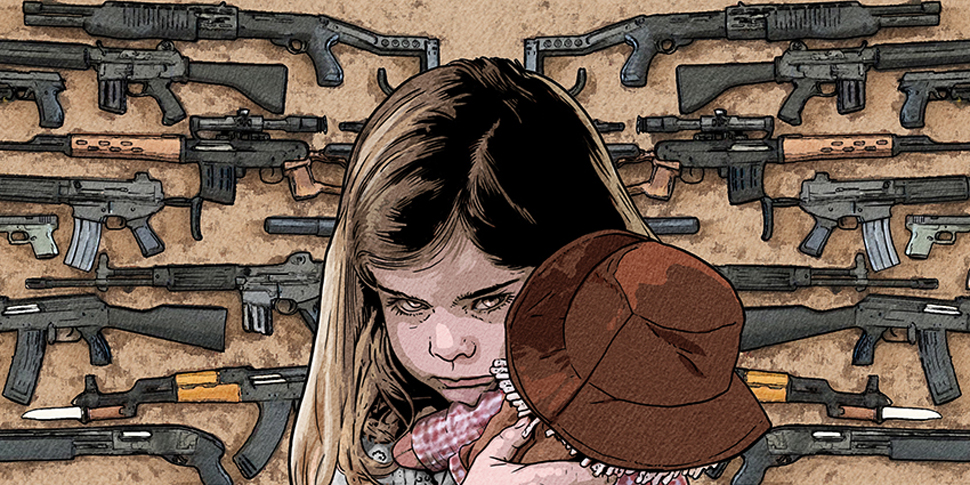
We live in a world where three of the ten deadliest mass shootings in recent United States history have happened within five months of one another. The latest school shooting in Santa Fe, Texas added to the ever growing list. The Stoneman Douglas High School shooting in Parkland, Fla, of this year, where seventeen people killed, sparked a movement of young people demanding concrete gun reform.
March For Our Lives and other activists have taken their demands to the streets, and to lawmakers, asking for comprehensive gun reform. They oftn have to face down attacks from the leadership of the National Rifle Association (NRA). Despite those attacks, however, the fact remains that gun violence is a leading cause of premature death in the U.S. Guns kill more than 38,000 people and injure nearly 85,000 each year. The second leading cause of death for young people aged 15 to 24 is gun-associated homicides, according to the American Public Health Association.
Before the shooting in Parkland, there was the mass shooting in Las Vegas, Nev. in October 2017. Stephen Paddock opened gunfire on a crowd of 22,000 concert attendees. Fifty-eight people lost their lives that night, with almost 500 people more injured. Like the mass shootings before and after it, the tragic event left in its wake victims people who will be changed forever.
The national debate on gun control rages on, and a collective of artists and creatives are adding to the conversation. U.S. comic book and graphic novel publisher Image Comics has created the “Where We Live” anthology, that explores a variety of themes concerning gun violence, common sense gun control, mental health stigmatization, the aftermath of tragedy, and how individuals and communities persevere.
The anthology contains over 70 stories from over 150 different creators who collaborated with Las Vegas locals to come up with both fictional and eye-witness accounts. One hundred percent of the proceeds for the “Where We Live” anthology will be donated to the nonprofit organization Route91Strong, which seeks to help “survivors with support through financial assistance hope, strength, change, and love.”
One of the contributors, best-selling author Neil Gaiman, remarked about the project, “It’s a strange place, this time and this country, in which having tools that can only be used to murder is seen as human right… It’s about wounds and healing, about death and forgiveness, about pain and childhood and the dark. I hope it helps make people think, and I’m honored to be part of the conversation.”
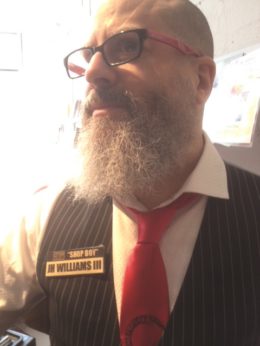
Comic book artist, J.H. Williams III (known for works such as Batwoman and The Sandman Overture), helped to curate the anthology. Writer Henry Barajas also contributed to the project. Both sat down with People’s World to answer questions regarding the importance of the book and the debate around gun control.
How did the idea for the anthology come about? And how easy, or difficult, was it to bring the project together?
J.H. Williams III: It was all due to us living here in Las Vegas. My wife Wendy and I have so many people here that we love and care about. The night of the shooting we were away from home to attend a friend’s wedding. And that Sunday night, when it all happened, we were on the phone with a friend that works on The Strip, who was forced into lockdown. It was a terrifying experience for them. And for us as well, because we couldn’t be there for them. except for trying to offer stability and comfort.
It was a sick helpless feeling. The week after returning home, it all haunted us. It’s not something you can shake off easily. That following Friday, I kept thinking there had to be something we could do beyond the obvious of giving a little money or giving blood. I started randomly posting on Twitter in the middle of the night that maybe a book should be done, but had no idea how to even do it, how to go about organizing it. By the time I woke up the next morning I had responses from people offering to help make it happen. So that’s when Wendy and I decided to try and do it, to create a book that raises funds while also serving a purpose of addressing the gun violence problems we’re all facing. We refused to be helpless, refused to feel helpless.
In a time where the debate around gun control is so heated and controversial, what do you hope your anthology brings to the conversation around gun laws and safety?
Williams: We’re not sure exactly. There are lot of different voices and viewpoints in the book. As an example, the viewpoint I take in the introduction to the book can differ from others being represented. I think each contribution brings its own perspectives.
One thing we definitely want people to take from the book is that this gun violence problem goes beyond statistics. There are people’s lives being forever changed by very horrific events. We want people to think about, and care about, the human cost that is taking place. It’s something we want readers to really consider. As long as we only view this problem in terms of statistics, rather than as real human lives, as our neighbors, our loved ones, our communities, our nation, we will never solve this problem. Wendy and I are not comfortable with that.
Henry Barajas: I hope this will help people cope. It’s getting to the point where we have all experienced or felt the aftermath of a mass shooting. I hope this will open a dialogue with readers and hopefully inspire them to vote for change.
Is there a particular story in the anthology that resonated the most with you?
Barajas: I was honored to tell Stephanie Ballou’s story for this impactful anthology. Her experience will stay with me for the rest of my life. I hope this will help her heal from that night.
Do you think there’s a tendency in our nation where, after these tragedies happen, the lasting effects on the victims and their loved ones aren’t taken into consideration? In what ways do you hope the anthology can help in shining a light on the aftermath and need for assistance?
Williams: Yes, many of the people who are directly impacted by these horrible incidents will face problems surrounding how it affected them for the rest of their lives. It’s not something they can walk away from. And as a caring society we should not walk away from them. This mode of thinking applies not just to people who’ve been severely affected by gun violence, but also in other areas of our society, [such as] the hungry, the poor, the homeless, and other problems that are solvable.
Barajas: It’s impossible for news outlets to share every story, and this comic gives people room to share their experiences. “Where We Live” becomes an inclusive environment for anyone to show the world how they will never be the same, but everything will be OK.
Do you see there being a change in the way our country deals with gun violence in the future?
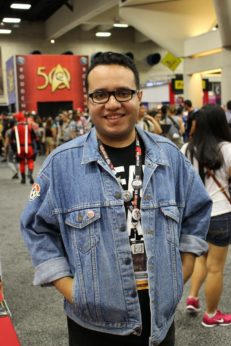
Williams: Yes, we have to believe that’s possible. If we don’t believe in that, then it will never happen. Change happens because of believing in change. On my drawing table I have a fortune cookie fortune taped to my lamp that says, “Believe it can be done.” I look at that everyday. If we apply the attitude of that simple tiny piece of paper fortune, we can do a great many things to improve our lives, and the lives of others.
Barajas: The change I see is from teen leaders and mass shooting survivors like David Hogg and Emma Gonzalez that have inspired change and lead a movement that was heard around the world.
If readers walk away with only one lesson or message from the anthology, what would you hope that message would be?
Williams: Care about other human beings as much as you care about yourself. If we do that, we can do better.
Barajas: There is hope. We all have a story to tell and someone is willing to read your story.
“Where We Live” is available now. A national book tour for the anthology from May 30 to June June 16 is currently underway. Dates and locations for the tour dates can be found here.


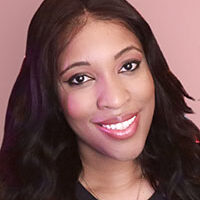
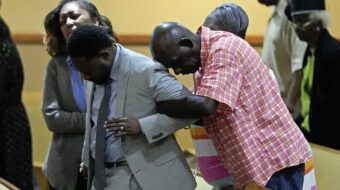
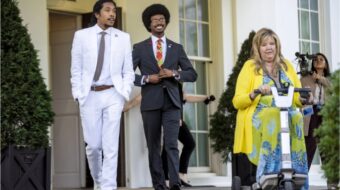
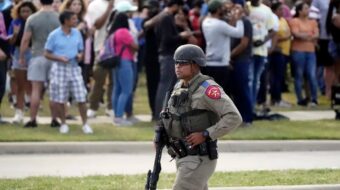






Comments